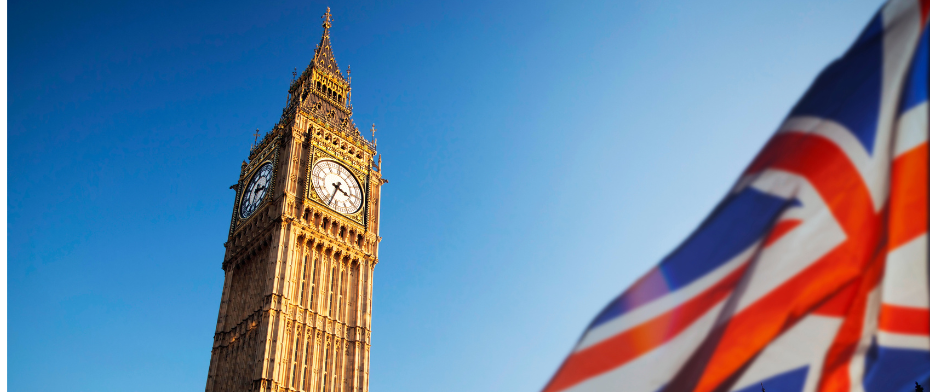Is the UK really bankrupt?
- TBA

- Oct 16, 2024
- 5 min read
Updated: May 29, 2025
Since coming to power, the UK Labour Party has consistently emphasised that the UK is facing a dire situation, attributing everything to the mess left by 14 years of Conservative rule.
The world was then hit with explosive news: the UK is on the brink of bankruptcy! It is reported that the Prime Minister’s office acknowledged ‘Britain is bankrupt, broke, and broken’. The strain on the UK’s public finances is not news to anyone following current affairs.
However, few expected that the finances could be so tight as to be ‘on the brink of bankruptcy’. After the statement was released, the Labour government boldly announced a staggering figure: a budget deficit of £22 billion.
This news immediately sparked intense discussions worldwide about what has happened to the once-great British Empire. Many commentators online felt that the media was sensationalising the issue, pointing out that even a single company like Evergrande Group can be in debt to the tune of £220 billion. Can a £22 billion budget deficit really lead to the bankruptcy of the country?
However, upon further reflection, it’s notable that since the end of the pandemic, ten local councils in the UK have declared bankruptcy. Even Birmingham, the UK’s second-largest city, and the industrial city of Nottingham have announced bankruptcy.
People have begun to suspect that the funding shortfall in the UK might be even larger than reported. Is the UK indeed on the road to bankruptcy?
How will the Labour government respond to this situation?

1.Why is there a £22 billion shortfall, leading the UK towards bankruptcy?
On July 29, the UK’s new Chancellor of the Exchequer, Rachel Reeves, publicly stated that the Labour government immediately ordered an audit upon taking office. The financial audit report revealed a significant fiscal black hole. The new government inherited a fiscal shortfall of £22 billion from the previous Conservative government, placing the UK’s public finances in a precarious position.
The audit report highlighted that the Conservative government made significant funding commitments during its 14 years in power to gain public support, without understanding where the funds would come from.
These unfunded promises amount to billions and include the Rwanda plan, higher UK standards, and new hospital projects. It is estimated that this year alone, funding for the government’s asylum system exceeds £6.5 billion, including payments for resettled individuals and costs related to the now-abandoned Rwanda plan. Military assistance to Ukraine has exceeded reserves by £1.7 billion, and railway construction costs have exceeded £1.6 billion. Moreover, the previous government failed to increase departmental budgets to cover public sector salaries, which exceeded the amounts recorded in the last spending review by £11-12 billion.
However, former Conservative Chancellor Jeremy Hunt dismissed these claims as fabrications. Regardless of whether Rachel Reeves’ claims are fabricated, it cannot be denied that successive UK governments have been adept at passing the blame.
Historically, each government tends to exaggerate the shortcomings it inherits, providing itself with a layer of protection. If they fail to deliver, they can blame the mess left by the previous administration. For instance, the Conservatives have never stopped quoting Labour’s former Chancellor Liam Byrne, who left a note for his successor in 2010.
In the political arena, Reeves’ tactics of passing the blame can be understood by politicians. However, for ordinary people, what we want to know is: how will the Labour government tackle these challenges?
Labour has spent most of its time during the election assuring that it would not raise taxes. However, with such a significant fiscal shortfall, it seems the government may have little choice but to justify tax increases. Many believe that while politicians play games, it is ultimately the ordinary citizens who suffer.

2.How will the government respond?
With a fiscal shortfall in national public finances, the government cannot simply dissolve or cease operations; it must carefully consider how to cut unnecessary spending while increasing revenue through various means.
On Monday, the Labour Chancellor officially announced the details of a spending cut plan.
Overall, the government aims to cut £5.5 billion in spending this year and an additional £8 billion next year. She also confirmed that difficult decisions regarding tax increases would be included in this autumn’s budget, to be announced on October 30.
Regarding the measures the Labour government plans to implement, here are several key points:
Winter Fuel Subsidy
The Chancellor stated that one way to cut spending is to stop providing winter fuel subsidies for retirees (except those receiving state benefits). This subsidy, worth £300, is applicable to all individuals above state pension age. The government confirmed that starting this winter, retirees will only receive this payment if they are on a pension, meaning ten million people will no longer receive it. This move will save the government approximately £1.5 billion. The proposal has been highly controversial, facing opposition from various sectors. Charities are concerned that this will affect 1.8 million low-income individuals. However, Reeves stated that considering the state of public finances, this decision is ‘fair’.
Public Sector Salaries
The Chancellor promised that the government would increase salaries for six million public sector workers by £9 billion. NHS workers and teachers will receive a 5.5% salary increase, while most other departments will see a 5% raise. Additionally, the government plans to address long-standing protests over low pay by increasing salaries by 22% for junior doctors over two years.
Tax Increases
The government confirmed that the budget on October 30 will include ‘difficult decisions’ regarding taxes, public spending, and welfare. This indicates that tax increases are on the table, exceeding what is outlined in Labour’s manifesto. Increasing capital gains tax and cutting pension tax relief are being considered.
Cost Cutting
Rachel Reeves stated that departments must bear one-third of the costs for public sector pay raises, which amounts to approximately £3.2 billion next year. Proposed measures include stopping ‘all unnecessary consulting expenditures’ which will save £550 million next year; achieving administrative efficiencies across government, saving £225 million, and addressing surplus public buildings.
Additionally, the Treasury stated that ending the Rwanda plan will save another £1.4 billion.

New Hospitals
The Labour government will conduct a comprehensive review of the Conservative government’s new hospital plan, which promised to build 40 new hospitals in England by 2040. Rachel Reeves indicated that since the announcement of this plan in October 2020, only one new project has opened to patients, and only six projects have started construction, adding that the previous government failed to fulfil its commitments due to inadequate funding.
Social Care Cap
The Conservatives promised to implement a cap on social care costs by October 2025, limiting personal contributions to no more than £86,000. This timeline is now cancelled, and Labour plans to establish a Royal Commission to seek a cross-party solution. Rachel Reeves stated that the £1.1 billion needed for reforms over the next two years has not been secured.
Transportation
Additionally, the Conservatives’ promised £1 billion transport projects have yet to receive funding. However, the Labour government has decided that several major road upgrade projects will not proceed, including the planned dual carriageway and tunnel on the A303 near Stonehenge and the A27 Arundel bypass. Moreover, plans to reopen closed rail lines under the Restore Rail program will be scrapped.
Advanced British Standard
Last year, former Prime Minister Rishi Sunak announced the Advanced British Standard, a qualification combining A-levels and T-levels, but Rachel Reeves stated that the previous government ‘did not set aside a penny for it’. Therefore, this plan will be cancelled, claiming it would save £200 million.
National Westminster Bank Shares
Rachel Reeves stated that the current government will also abandon a Conservative plan to sell the government’s 20% stake in NatWest through a ‘Tell Sid’ campaign. Reeves indicated that she still plans to sell these shares, but retail sales would waste taxpayer money and potentially lose hundreds of millions due to discounts.
For individuals and businesses looking for UK taxation services, use our contact form to get in touch for more information.
Get in touch with us at info@tbgroupuk.com or for a free one-to-one consultation.



